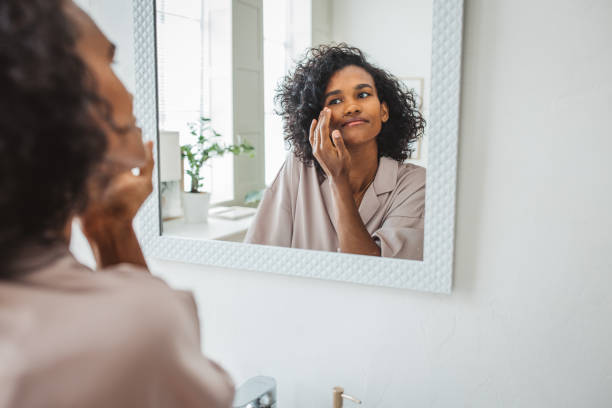
When was the last time you felt calm? How often do you feel a deep sense of inner peace? If your immediate thought is that you’re not sure if you’ve ever felt a deep sense of inner peace, you’re not the only one. So many of us feel the constant barrage of stimuli, the racing thoughts and worries in our minds, and pressures from around us. In today’s fast-paced world, it’s easy to feel overwhelmed by daily demands, uncertainties, and stressors, and more and more people find that they can’t seem to find a way to settle their bodies, thoughts, and emotions. Anxiety can often amplify our feelings of stress and pressure, as well as hopelessness about being able to find a solution. This leaves us stuck in a cycle of worry and unease. However, cultivating a sense of calm and inner peace can act as a powerful antidote to these anxious thoughts. Inner peace is not about eliminating all of life’s challenges, but rather developing the tools to navigate them with grace, resilience, and clarity.
The Importance of Inner Peace for Anxiety
Inner peace plays a crucial role in managing and reducing anxiety. When we are anxious, our minds are often racing, and we tend to focus on what could go wrong. This constant state of worry prevents us from feeling grounded and calm. Achieving inner peace allows us to quiet the mental noise, reduce feelings of overwhelm, and gain a sense of control over our emotions. With a calmer mind, we are better equipped to manage anxious thoughts and respond to stress in a healthier, more balanced way.
3 Ways to Find More Calm and Inner Peace in Your Life
- Practice Mindfulness and Meditation:

Mindfulness is about bringing your attention to the present moment without judgment. It helps to slow down racing thoughts, making space for a more grounded and peaceful state of mind. When we are mindful and our thoughts are in the present, we are not ruminating about the past, or worrying about the future. Because we cannot change the past and we have not yet arrived in the future, our anxiety can increase with negative self-talk about mistakes we have made, or concern about how things will go. In the meanwhile, we aren’t keeping an eye on what is around us.
Having our attention on the present also helps us to see and understand our priorities more clearly. If you are listening to your body and recognize hunger, you will learn that taking a moment to eat something helps you to keep going through your day with more strength and presence of mind. Where you might have tried to tune out your hunger cues in the past, telling yourself that you were too busy to take care of yourself in that moment, you are instead able to provide yourself with something that is necessary and important. In a mindfulness practice without judgment, you are also free of asking yourself how long it’s been since you last ate something. These efforts to determine if you “should” be hungry don’t come from a place of observing your current state and accepting it, and they don’t allow you to meet your own needs in the best way. It is amazing how often we try to negotiate with ourselves about if we “have time” for food, water, or rest. In the end, the body keeps the score; hungry and thirsty brains struggle to make decisions, to regulate emotions, to keep track of tasks. Tired bodies are more susceptible to injury and illness, as well as lending themselves to a feeling of stress and overwhelm. When you don’t feel strong in your body, it’s hard to feel strong in your mind.
Many of the people who see us for anxiety therapy in Woodland Hills often tell us that they want to incorporate more habits that help them relax, but aren’t sure where to start. Try starting your day with a simple meditation practice, even if it’s just for 5-10 minutes. Focusing on your breath, sensations in your body, or the sounds around you can help bring your awareness back to the present moment and reduce anxiety.
Meditation has a reputation of looking one specific way, but it’s not a one-size-fits-all practice. You do not have to lay down for an hour in a perfectly quiet room to meditate, unless that is what works best for you. Finding a practice that you can access is what matters. Meditation allows us to calm our minds and bodies, and a regular routine can help to lower our baseline stress levels so that incidents and accidents have a less dramatic impact on our lives. A meditation practice won’t prevent bad things from happening, or stressful times from occurring. What it will do is give you a familiar tool to access, so that no matter what state you are in, you have an ingrained action to take to enable you to care for yourself.
- Set Healthy Boundaries:

Often, anxiety is fueled by overcommitment and the inability to say no. Setting healthy boundaries—whether in your work life, relationships, or daily routine—can significantly reduce the pressure you feel. Being clear about your needs and limits allows you to prioritize self-care and prevent burnout, leading to more inner peace. If you struggle with people-pleasing and/or perfectionism, you may fear and abhor the very idea of setting a boundary, but it is the ultimate act of self-care and self-respect, as well as the most effective way to show others how to care for you.
A lot of our in-person or online anxiety therapy focuses on being comfortable and confident with setting boundaries. These boundaries help others to learn how to support you and show their care for you. They are in place so that everyone is on the same page and on a level playing field when it comes to displaying respect for one another’s time, goals, and needs.
Often, we discover that our inner peace is disrupted by the pursuit of perfectionism. This might be a longstanding behavior that we aren’t fully conscious of. When we are our own worst enemy, it is essential that we speak kindly to ourselves and show ourselves grace for our mishaps. The compulsion to take on too much, whether it’s too many separate tasks, or exceedingly large projects, can be ingrained in us, and tied to our feelings of self-worth and value. When it comes to what we sign up for, learning to set boundaries with ourselves is just as important as setting them with others. Times when we decide to decline to participate in something, or where we discover that we need help, might be difficult to manage at first. You might learn that you have to move forward in some way, but aren’t sure how to leave behind the feelings associated with past mistakes and missteps.
In order to determine what your boundaries are, you need to take time to consider your priorities and values. Sometimes, we can experience confusion, wherein we think that our highest priority requires us to forego self-care and rest. Actually, most of your goals can be linked with self-focused choices. For example, if your top priority is your family, it is easy to think that they should come before all else. The boundary to set with yourself is that you cannot expect to burn yourself out but still show up as your best self for the people you love. The times when you prioritize a family member over rest, nourishment, hydration, and other foundations of self-care should be few and far between; true emergencies and true emergencies only. In order to make sure you’re able to care for yourself on a regular enough basis that you can show up the way you want to, you will determine which boundaries you have about your sleep schedule, your nutrition, how and when you move your body, the chores and errands on your to-do list, the activities you can volunteer for, and more. Declining to work the bake sale because you look at your schedule and see that that is the only time in the week that you’ll be able to relax and reset isn’t about saying no to helping out at the bake sale, it’s about saying yes to the remainder of the week and the things that will need your energy and attention.
- Engage in Activities that Promote Relaxation:

Finding time for activities that calm your mind and body is essential in reducing anxiety. Whether it’s yoga, journaling, taking nature walks, or even engaging in creative hobbies like painting or playing music, these activities can bring a sense of joy and relaxation. They act as a buffer against stress, promoting a state of calm and helping you reconnect with yourself.
As an anxiety counselor in Woodland Hills, I hear a lot from people who are trying hard to “get it right” when it comes to relaxing and beneficial activities. If you feel this way, you are not to blame. There is so much noise and so many different messages surrounding “how to relax” that the idea of it can be very stressful, ironic as that sounds! There can sometimes be ideas that turn into all-or-nothing thinking, whether it’s the thought that if you can’t find somewhere completely silent to meditate, you shouldn’t bother, or that it takes a certain number of minutes of any specific activity to feel the benefits. While it’s true that there are often optimal circumstances for wellness activities, getting caught in the idea that it has to be a prescribed series of behaviors isn’t helpful. Some is better than none, whether you’re walking for five minutes to blow off steam, or listening to a one-minute meditation in your office chair between client meetings. Carving out time is important work, and always a good goal to have. But there is no reason why you can’t take pride in doing what you can do, even if some days that’s not a heck of a lot.
When you are trying to relax and have fun, it can be helpful to engage in activities that nurture and honor your inner child. Connecting with your inner child can often lead to discoveries about what is most beneficial for your mental wellbeing, because the things we did as children were usually instinctual. We didn’t care if they were going to be lucrative, or what impact they might have on our grades, we did things that made us happy. When you are able to carve out time that is reserved solely for promoting your happiness, relaxation follows. You may find yourself addressing fears and negative stories that come up for you about taking time for self-care, but those can be addressed. Many people in our Woodland Hills anxiety therapy sessions admit to feelings of guilt or shame around having a desire for self-care at all, let alone making space for it in their lives.
Consider it your task to engage in activities that make you feel good. Whether you use a calendar to mark every day that you partake in your hobby and strive to reach a certain number of days in a month, whether you set alarms to remind you to spend ten minutes watching a standup comedian who always makes you laugh, whether you register for a class and promise yourself you’ll attend, make a pact with yourself. Show yourself commitment and care by pursuing the things you enjoy. It can be the ultimate show of knowing your self-worth to engage in things purely for the sake of your own happiness.
When we treat ourselves as if we are worthy of relaxation and happiness, it is easier to sense when our actions aren’t contributing to that goal, and make adjustments from there. It won’t be perfect all the time, but a consistent pursuit of happiness can shift your perspective on the world and your optimism and gratitude, reducing stress and strengthening your feelings of resilience.

In the pursuit of inner peace, don’t forget that it’s not possible to achieve it every minute of every day. Inner peace is a deeper sense of comfort and familiarity with oneself, and the knowledge that you have the skills and abilities to take on what is coming toward you. It is not a constant state of zen, it is not being unshakeable. It is being able to return to a regulated state when something disrupts you; for the minor disruptions, it might be simple, and for the more drastic ones, it might take longer. Inner peace is knowing that you will make your way there, whether that’s easier to do or more of a challenge. With it comes self-confidence and acceptance that allows you to show more care and compassion for others, to seek ways to better your life and the lives of those around you. With consistent effort, you can cultivate a life that feels easier on you, even when there are challenges. And over time, that effort re-invests in itself, feeling more natural and coming more easily as you pursue your own happiness.
Anxiety Therapy at Embracing You Therapy
Do you often find yourself overwhelmed with worry or constantly feeling stressed? Is maintaining a work-life balance, navigating life transitions, or setting healthy boundaries a struggle for you?
By seeking Anxiety Therapy in Woodland Hills, CA, you can learn CBT and mindfulness techniques to help you manage your emotions more effectively and develop healthier thought and behavior patterns that support your well-being.
Contact us today for your complimentary 20-minute phone consultation with our Admin Team today!




